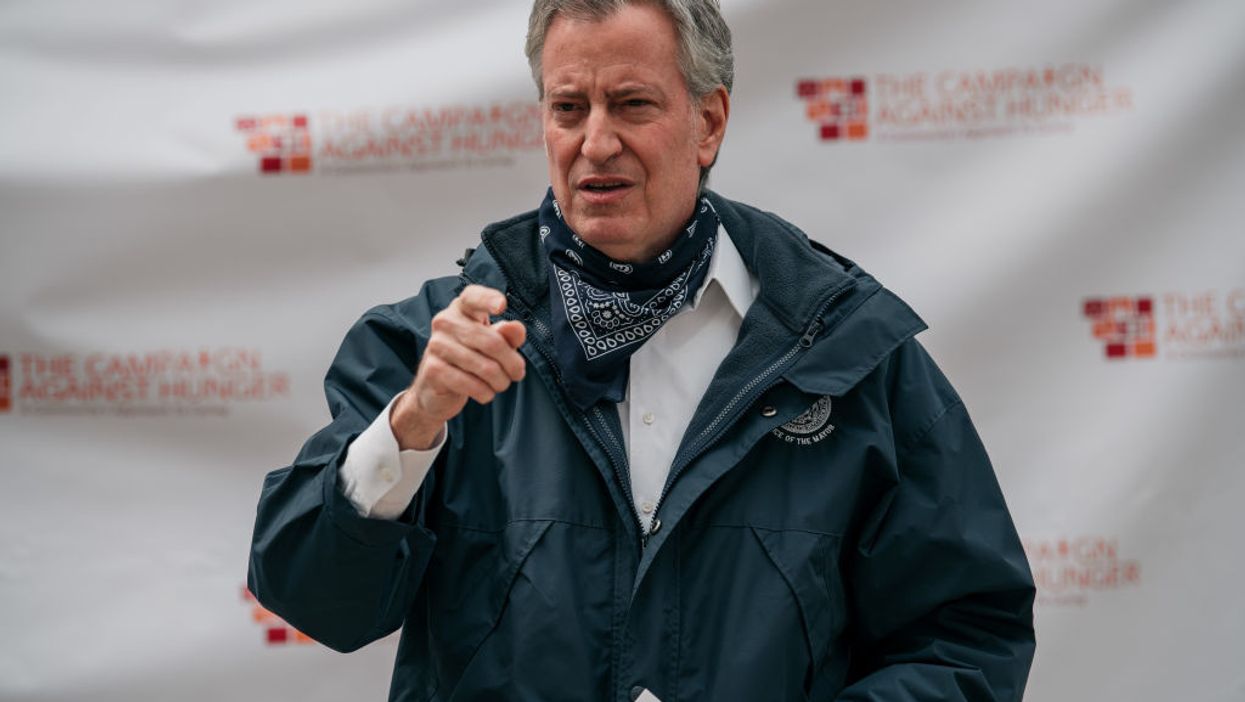
Photo by Scott Heins/Getty Images

Just a slight difference
New York City Mayor Bill de Blasio announced Thursday that the city will take steps to provide for its Muslim community amid the coronavirus by distributing "over half a million meals" during the Muslim holy month of Ramadan.
The 500,000 Halal meals will be distributed at 32 Department of Education buildings and other community organizations during Ramadan, Bloomberg News reported. Ramadan began Thursday evening and will end the evening of May 23.
"One of Ramadan's most noble callings is to feed the hungry," de Blasio said Thursday during a press briefing. "To remember to be there for those in need. And that is now harder than ever now that people can't go to their mosques."
"We all wish that the celebrations of Easter and Passover could have been so different," de Blasio said during the briefing.
However, many Christian and Jewish New Yorkers may find that statement unsettling, given the mayor's harsh warning for the faithful from those religions at the start of the COVID-19 outbreak in the city.
You may remember that de Blasio threatened to permanently close churches and synagogues that dared gather together in violation of New York Gov. Andrew Cuomo's shelter-in-place order.
TheBlaze's Chris Enloe noted that de Blasio's threat was launched only hours before Jews were to meet for their weekly Shabbat gatherings.
This is not the first time that New York officials have appeared to give preferential treatment to Muslims in the state over Christians and Jews.
Earlier this week, TheBlaze reported on a New York mosque that remains open for daily prayers in the upstate even as the state's current executive order broadly bans all "non-essential gatherings of individuals of any size for any reason."
The news came as churches across the country have faced growing criticism and, in many cases, punishment for continuing to gather amid the pandemic.